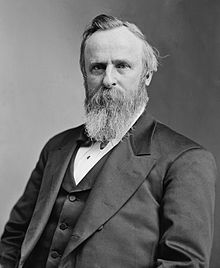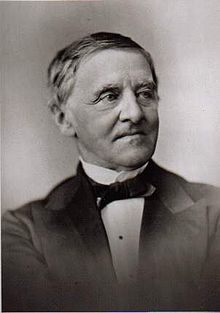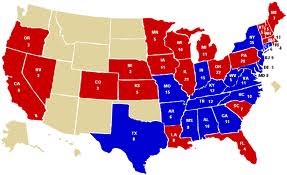I have started to read Kurt Schlichter’s “People’s Republic” and its prequel “Indian Country”. The premise of these two stories is that the United States has split up between the red states and the blue states. The red states have retained the name, and presumably the constitution of the United States of America. The blue states have named themselves the People’s Republic of North America and have adopted a new, progressive constitution. The protagonist, Kelly Turnbull, a former soldier who now assists people fleeing the tyranny of the People’s Republic, is charged with rescuing a young Texan woman who has defected to the People’s Republic, and may not want to come back.
Indian Country is a prequel, telling the story of a previous adventure of Turnbull’s, in which he engaged in an undercover operation to assist people in southern Indiana who are fighting against the tyrannical regime of the People’s Republic. Here is where I begin to have some problems with the story.
Here is the cover of People’s Republic, which presumably shows how the United States is split between red and blue.
Now, as a life long Hoosier, I can attest that there is no way that Indiana would voluntarily be part of anything called the People’s Republic. Indiana happens to be one of the redder, more conservative states. We are the home state of Mike Pence. Don’t be fooled by the fact that we currently have a Democratic Senator and have sent some Democrats to Congress. In Indiana, particularly in southern Indiana, even the Democrats are red.
Perhaps Kurt Schlichter believes that in the give and take of the Split Indiana has to go with the blue states because we are surrounded on three sides by blue states and the Ohio River would make a logical border between the two states. That really doesn’t work, however. Ohio is not a blue state but a purple state. That is, Ohio is a swing state that can go either way in presidential elections. The state is evenly divided between Republicans and Democrats, but I suspect that there are just as many rednecks and hillbillies in southern Ohio as there are in Kentucky and West Virginia. Illinois is a deep blue state, but that is mostly due to the densely populated region around Chicago in the north. The Illinoisans in other parts of the state tend to resent Chicago’s domination and there is even a movement for the rest of the state to secede from the Chicago region. Like Indiana, Illinois becomes redder as you move south. It is not unlikely that if Chicago dominated Illinois seceded from the Union to join the People’s Republic; the southern half of Illinois would secede to form South Illinois, just like West Virginia in the first Civil War.
The truth is that few states are entirely red or blue. California is another deep blue state, perhaps the most liberal state in the Union. The whole state of California is not populated by the loony left, only the urban coastal regions from San Francisco to San Diego. The more rural interior of California is conservative, by California standards anyway. Texas is a very red state, but it turns blue along the border and in Austin. Indiana is, as I have said, red, but there are blue enclaves in Bloomington, Indianapolis, and the northwest corner adjacent to the Chicago area.
Here is a map of the 2016 election results by country.
What we see here is a country divided between a small, densely populated region and a large, sparsely populated region. The division between red and blue is not so much a division between red and blue states as a division between red rural areas and blue urban areas. What this means is that any split between red and blue would not occur along neat, geographical lines, as was the division between the Union and the Confederacy. Actually, even the results by county map is somewhat misleading. In every red or blue space, there are still a number of people of the opposite color.
A split between red and blue would be messy. In the preface of People’s Republic, Kurt Schlichter that his story is not any sort of fantasy he wants, but a warning of what could happen if present trends continue unchecked. He is being overoptimistic in assuming a neat, relatively peaceful division. The Civil War is often described as, “brother against brother”. This was not true, except in a metaphorical sense. Except for the inhabitants of the border states, and the small, pre-war officer’s corps, few of the soldiers who fought were related to anyone fighting on the other side. The new civil war would be literally brothers fighting brothers, neighbors fighting neighbors. It would be less Grant and Lee meeting at Appomattox Court House and more Bosnia or Rwanda.
A red-blue split would be messy not only in political terms but also in economics. Part of the reason Kurt Schlichter wrote People’s Republic seems to be to demonstrate the superiority of the Red economic model over the Blue. The capitalist, free market United States is shown to be prosperous, while the People’s Republic has adopted Venezuelan-style socialism with predictable results, an increasingly impoverished country unable to feed its people. This seems fair enough. When you compare North and South Korea or East and West Germany, cases in which both sides share a common language and culture, the superiority of free market capitalism to provide needed goods and services is evident. The problem is that I do not see how it would be possible to divide a country with an economy as interconnected as America’s into two separate states, with no trade between them, without causing massive economic dislocations. I would think that even a peaceful separation would bring about a depression. A civil war would cause an economic collapse that would make the Great Depression look like the height of prosperity. Nor is it clear that the red states would flourish on their own. Losing the coasts, with their population centers and wealth would be a terrible blow. It seems likely that even a decade after the split both sides would be trying to recover.
Kurt Schlichter wrote these novels as a warning. The future he describes is an unpleasant one, but not all that realistic. The actually consequences of a red-blue split would be far worse than anything in these books, which is good reason to extend any effort to make sure nothing like this scenario every takes place. We really need to tone down the rhetoric we use with each other and stop thinking of our fellow Americans as the enemy. We have to accept the results of elections, provided there is no provable fraud, and not delegitimize our elected officials for political gain. Everyone has to start playing by the same rules and not change them whenever they are inconvenient for one side. Most of all we have to learn, or relearn the practice of disagreeing with someone without hating them. If we can’t manage this, then we are all in for a very bad time.





